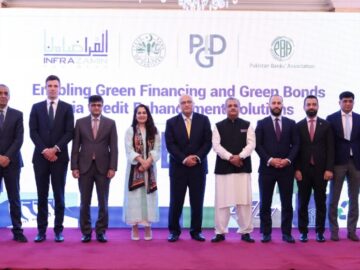Pakistani officials informed that the Financial Action Task Force about the progress made with regard to the implementation of its action plan to strengthen the country’s anti-money laundering and combating the financing of terrorism framework.
A 15-member Pakistani delegation, headed by Minister for Economic Affairs Division Hammad Azhar, is holding talks with the FATF’s Asia-Pacific Joint Group in Bangkok. The negotiations between the two sides will continue until September 13.
The Ministry of Finance said in a statement that “The Pakistan delegation effectively presented Pakistan’s progress on each of the FATF action plan items and provided additional information/clarification to the AP-Joint Group.”
During the talks, Azhar conveyed his government’s strong commitment to implement the international AML and CFT standards. He reaffirmed Pakistan’s unequivocal commitment to work with the international community in the fight against money laundering, terrorism financing and other financial crimes.
The minister said Pakistan achieved all targets set by the FATF in the last four to five months. He said the technical evaluation team was briefed in detail on steps taken by Pakistan to implement the FATF action plan.
During the ongoing talks, Pakistani officials will also respond to FATF’s queries about restricting activities and freezing the assets of proscribed organisations and groups.
On Monday, Pakistani officials submitted a report on strengthening of the country’s anti-money laundering and combating the financing of terrorism framework.
The FATF will make a final decision on whether to exclude Pakistan from its grey list, keep it or place it on the black list at a meeting in Paris on October 16-18.
Being on the grey list doesn’t come with any sanctions. However, if Pakistan remains on this list, it faces the risk of being put on the black list. This is where it gets problematic.
Being on the black list means its banking system will be regarded as one with poor controls over AML and CFT standards — forget bringing PayPal to Pakistan, expatriates will find it difficult to send remittances and traders’ cost of business will increase because local banks will face higher scrutiny in international payments and foreign banks might not even do business with Pakistani banks.
Earlier on August 22, the FATF’s Asia Pacific Group had adopted Pakistan’s third mutual evaluation report, which identified a number of areas where further action was required to strengthen anti-money laundering and combating the financing of terrorism framework.
The APG adopted the report during its 22nd annual meeting in Canberra from August 18 to 23. A high-level Pakistani delegation, headed by State Bank of Pakistan Governor Dr Reza Baqir, attended the meeting.











